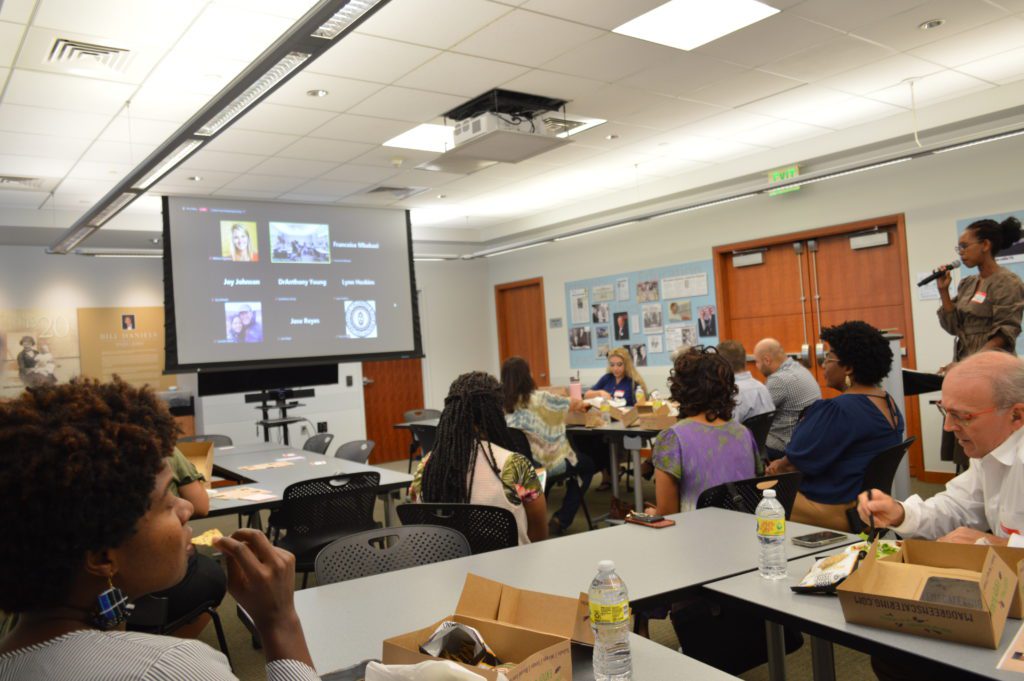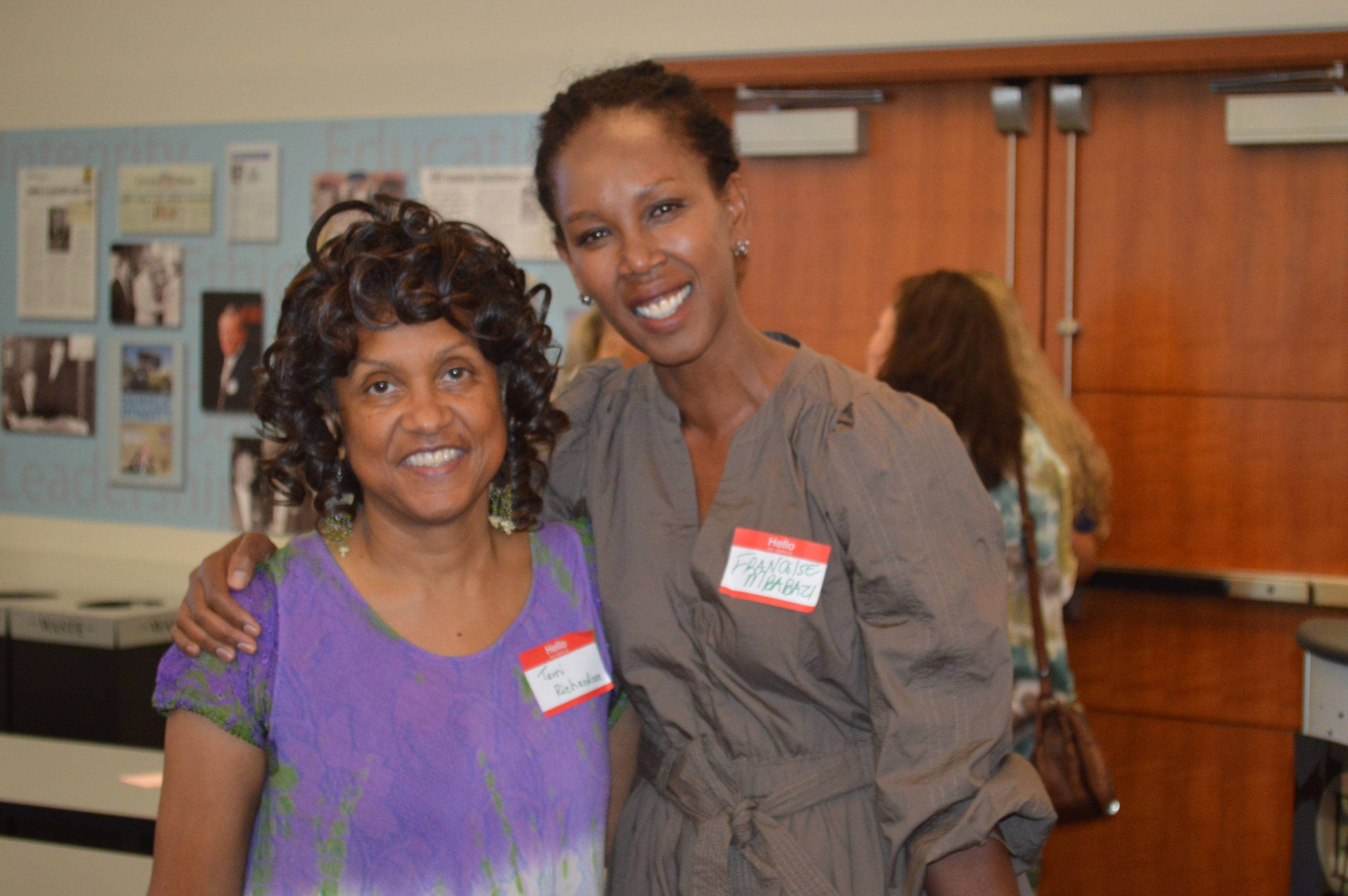 Africa Agenda
Africa Agenda An audience of black, brown, and white people meeting at the Daniel’s Fund in Denver to discuss the dangers of Skin Bleaching and Colorism. Wednesday, September 14, 2022
Skin Bleaching or “colorism” among people of color is a topic that rarely comes up in community discussions in the United States or in African countries.
The practice is also known as “skin lightening.” It involves the use of chemical products by mostly black and brown people to help change or lighten their complexion or physical looks and appearances.
It’s a subject that the Denver-based organization My Skin Global wants to raise to the forefront of our conversations because of the health hazards it poses to the community.
Human rights activist Francoise Mbabazi, a Rwandan native living in Colorado and founder of My Skin Global convened some of Colorado’s black educational and medical leaders and the community for a discussion to raise awareness about the issue.
Speaking at an event held at the Daniel’s Fund in Denver on Wednesday, September 14, Mbabazi raised the alarm bells about what the practice does to the psychological and physical health of those involved.
“This is an issue that has not been at the forefront of the community, but it’s coming up,” Mbabazi said. “It’s going to continue to come up as we all spread the word.”
Community Education and Awareness
Retired medical practitioner Dr. Terri Richardson, invited to discuss the consequences of skin bleaching, used her time at the event to highlight some of the dangers of skin-lightening products.
“The ingredients that are used are very dangerous,” she said. Some of the dangers she mentioned include skin disorders and various types of cancers that result from the treatments.
Richardson said black people need to love themselves first and foremost to help overcome the challenges they face in society.
“When we talk about colorism, when I look around the room, to me everybody is beautiful,” Richardson said. “And we see all shades of everything.”
Richardson traced the colonial roots of the issue and talked about how public pressure can be brought to bear on the multi-million-dollar industry that manufactures these skin-lightening products.
Christina Jones, a manager and educational leader with Denver Public schools, used her time to talk about how learning experiences for students of color can be designed to accommodate these kinds of discussions
“How many times are we giving ourselves a life sentence for something that we didn’t inflict on ourselves,” Jones asked the audience of more than 30 participants both online and in person at the event. “And so, it’s really important that the work that we are doing to educate kids to know that they do not have to have a life sentence in who they are,” she said.
Plasha McCune, an educational leader in Denver who facilitated the afternoon conversation, asked participants to pledge to engage in conversations that can change the narrative about Black people.

